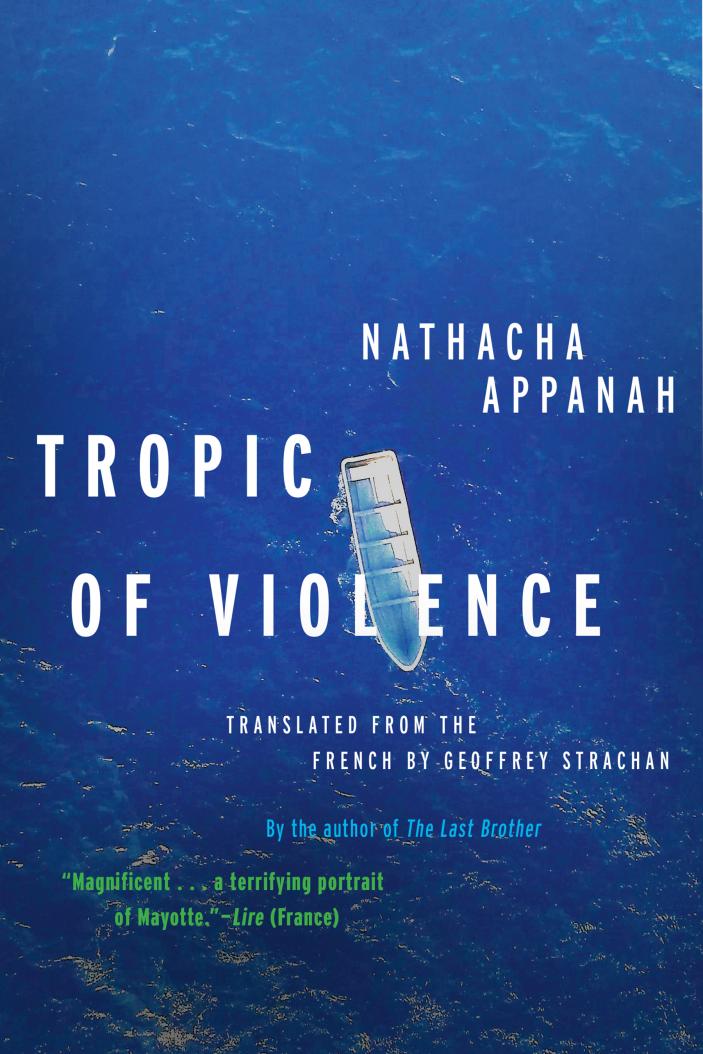
Tropic of Violence
Attempts to flee to Europe don’t only happen via the Mediterranean Sea, but also in the Indian Ocean. There – north of Madagascar – lies the island of Mayotte, an overseas territory of France. The Mauritian-French writer and journalist Nathacha Appanah lived on Mayotte for several years and occupied herself particularly with the fates of boys. This is precisely the subject of her latest novel, Tropic of Violence, translated from the French into English by Geoffrey Strachan.
Appanah’s story begins when Marie, a white French nurse living on Mayotte, takes in the baby of a woman who has fled the Comoro Islands. The young mother believes her baby, with one green eye and one black eye, is cursed. Marie calls this Iris heterochromia and is overjoyed to have a child. The boy she calls Moïse grows up and his life with Marie is actually comfortable: he has French papers, goes to a good school – but internally, the question of his identity, the loss of his biological mother, and being raised by a white woman, trigger anger in him. When Moïse is 14 years old, his life is completely turned upside down. He now gets to know a completely different side of Mayotte and is literally at the mercy of Bruce and the gang of boys he leads.
From continuously changing perspectives, Marie, Moïse, Bruce, and later the policeman Olivier and the social worker Stéphane, tell of Moïse’s fate and that of many other boys on the island. The novel reads like a collection of personal accounts and conveys an absolutely brutal and hopeless reality of life for young people on Mayotte who are left to fend for themselves. In the shanty town called Gaza, Bruce organizes the children and teenagers; together they keep themselves alive by begging and stealing. Bruce styles himself as the boss of Gaza and uses violence to get his way. Feeling power over others, humiliating them, gives him almost as much of a high as his drug habit. For both Moïse and Bruce, their coming together will be their undoing.
Appanah’s novel is utterly enriching, as it brings a little-noticed part of France into focus. Overall, showing brutal vulnerability is central to this – so brace yourself! Within this, the passages about Moïse’s inner conflicts and local worldviews were particularly appealing to me.
Order the book here and support us! The work behind poco.lit. is done by us – Anna und Lucy. If you’d like to order this book and want to support us at the same time, you can do so from here and we will get a small commission – but the price you pay will be unaffected.

